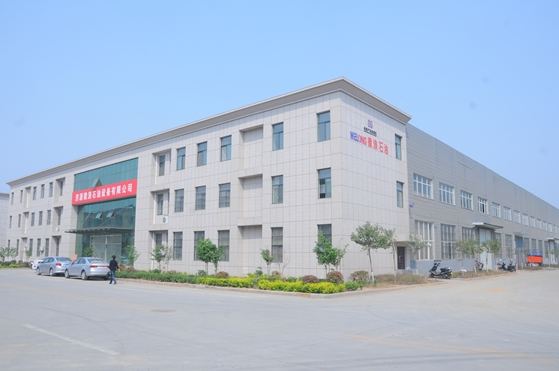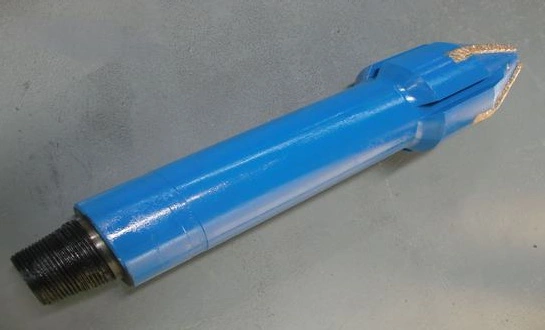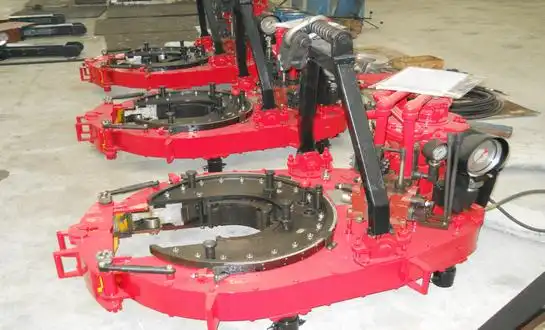Forged rolls are manufactured through a meticulous process that enhances their mechanical properties, resulting in superior strength, wear resistance, and longevity compared to their cast counterparts. This advanced manufacturing technique aligns the metal's grain structure, creating a more uniform and dense material that can better withstand the rigorous demands of steel rolling operations. As a result, steel mills equipped with durable forged rolls experience reduced downtime, lower maintenance costs, and improved product consistency. The enhanced performance of these rolls translates directly into increased productivity and profitability for steel manufacturers, making them an invaluable asset in the competitive global market.
What advantages do forged rolls offer over other roll types?
Superior Strength and Durability
Forged rolls exhibit exceptional strength and durability due to their unique manufacturing process. The forging technique involves applying intense pressure to heated metal, which rearranges its internal structure and eliminates potential weak points. This results in a more homogeneous material with improved mechanical properties. Consequently, forged rolls can withstand higher loads and resist deformation better than other roll types, leading to extended service life and reduced replacement frequency.
Enhanced Wear Resistance
One of the standout advantages of forged rolls is their exceptional wear resistance, which stems from the forging process that produces a denser and more compact material structure. This increased density gives forged rolls superior resistance to abrasion and surface degradation, even under extreme friction and high-temperature conditions commonly encountered in steel mills. The improved wear resistance ensures that the rolls maintain their integrity over longer periods, resulting in more consistent surface quality of the rolled steel. Consequently, this reduces the frequency of roll replacements, leading to fewer interruptions in production and greater overall mill efficiency. This longevity and reliability of forged rolls contribute significantly to enhanced productivity in steel manufacturing processes.
Improved Thermal Stability
Thermal stability is a crucial factor in mill roll performance, especially in hot rolling applications. Forged rolls demonstrate superior thermal stability compared to cast rolls or other alternatives. The uniform grain structure achieved through forging allows for better heat distribution and reduced thermal stress. This property enables forged rolls to maintain their dimensional accuracy and mechanical properties even under extreme temperature fluctuations, ensuring consistent product quality throughout extended production runs.

Forging techniques that improve wear resistance and strength
Controlled Grain Flow
Advanced forging techniques have been developed to precisely control the grain flow within the metal during the manufacturing process. By carefully guiding the direction and pattern of the grain structure, engineers can enhance the roll's strength and wear resistance in specific, high-stress areas. This targeted manipulation ensures that rolls are exceptionally durable where they are most needed while maintaining balanced properties throughout the entire roll body. The controlled grain flow technique is particularly advantageous for work rolls in finishing stands, where the surface quality and dimensional accuracy of the steel are critical. This approach not only improves the performance and longevity of the rolls but also ensures the consistent quality of the final product.
Alloy Composition Optimization
The selection and optimization of alloy compositions play a crucial role in enhancing the performance of forged rolls. Metallurgists and engineers work closely to develop custom alloy formulations that provide the ideal balance of hardness, toughness, and wear resistance for specific mill applications. These tailored alloys, when combined with the forging process, result in rolls that exhibit superior performance characteristics. For instance, the incorporation of carbide-forming elements can significantly improve the wear resistance of rolls used in hot strip mills.
Heat Treatment Processes
Heat treatment is an integral part of the forging process that further enhances the properties of mill rolls. Techniques such as quenching and tempering are employed to achieve the desired microstructure and mechanical properties. Advanced heat treatment processes, like induction hardening or laser hardening, can be used to create rolls with exceptionally hard surfaces while maintaining a tough core. This combination of hardness and toughness is essential for rolls that must withstand both high compressive forces and thermal fatigue.
Comparing forged rolls with cast rolls: Performance and cost
Mechanical Properties and Lifespan
When comparing forged rolls to cast rolls, the differences in mechanical properties and lifespan are significant. Forged rolls generally exhibit higher tensile strength, improved ductility, and better fatigue resistance than their cast counterparts. These superior mechanical properties translate into a longer operational lifespan for forged rolls, often outlasting cast rolls by a considerable margin. In high-demand applications, such as hot strip mills or plate mills, the extended service life of forged rolls can lead to substantial reductions in downtime and maintenance costs.
Surface Quality and Dimensional Stability
The surface quality of rolled steel products is directly influenced by the condition of the mill rolls. Forged rolls typically maintain better surface finish and dimensional stability throughout their service life compared to cast rolls. This is due to the more uniform microstructure and reduced internal stresses achieved through the forging process. As a result, steel mills using forged rolls can produce higher quality products with tighter tolerances, potentially commanding premium prices in the market. The improved dimensional stability of forged rolls also contributes to more consistent gauge control during rolling operations.
Initial Cost vs. Long-term Value
While forged rolls often have a higher initial cost than cast rolls, their long-term value proposition is compelling. The extended service life, reduced maintenance requirements, and improved product quality associated with forged rolls can offset the higher upfront investment. When considering the total cost of ownership, including factors such as production efficiency, downtime reduction, and product quality improvements, forged rolls often prove to be the more economical choice for modern steel mills. Additionally, the ability to refurbish and reuse forged rolls multiple times further enhances their cost-effectiveness over the long term.
Source: CHINA WELONG-Oilfield tools Manufacturer
FAQ about Mill Rolls
What are the key factors to consider when selecting mill rolls?
When selecting mill rolls, it is essential to consider several key factors to ensure optimal performance and longevity. These include the type of rolling application, such as hot or cold rolling, as well as the material being processed, including its grade, thickness, and width. The required surface finish of the final product plays a critical role, as does the mill's configuration and operating conditions. Additionally, the properties of the roll material—such as hardness, wear resistance, and thermal stability—must be evaluated, alongside considerations of the expected production volume and campaign length. Maintenance and refurbishment capabilities are also crucial, ensuring the rolls can be serviced efficiently. Finally, the total cost of ownership, which encompasses both the initial investment and long-term performance, should be factored into the decision-making process to achieve a balance between cost and operational effectiveness.
How often should mill rolls be replaced or refurbished?
The frequency of roll replacement or refurbishment is influenced by several factors, including the type of rolling operation (hot or cold rolling), the material being processed, the roll material and manufacturing process, and operating conditions such as load, speed, and temperature. Additionally, the desired surface quality of the rolled product and mill maintenance practices also play a role. Typically, work rolls in hot strip mills may require replacement every 8-24 hours, while backup rolls can last several weeks. In cold rolling mills, work rolls tend to last 1-2 weeks, and backup rolls may endure for several months. Regular monitoring of roll wear and surface conditions is crucial for determining the optimal schedule for replacement or refurbishment, ensuring efficient mill operations and product quality.
What are the latest advancements in mill roll technology?
Recent advancements in mill roll technology have led to several innovations aimed at improving performance and efficiency. These include the development of new alloy compositions for enhanced wear resistance and thermal stability, as well as advanced surface treatments and coatings that further boost roll durability. Intelligent roll monitoring systems have been implemented for predictive maintenance, while computational modeling is used to optimize roll design and performance. Additionally, the integration of additive manufacturing techniques enables roll repair and customization, and eco-friendly, energy-efficient roll manufacturing processes are being adopted. Advanced heat treatment techniques are also being employed to enhance roll properties, and hybrid roll designs, combining different materials or manufacturing processes, are being developed to provide more versatile and high-performance solutions.
In conclusion, the benefits of durable forged rolls in modern steel mills are undeniable. From superior strength and wear resistance to improved thermal stability and product quality, forged rolls offer a compelling solution for steel manufacturers looking to optimize their operations. As the industry continues to evolve, the role of high-performance mill rolls in maintaining competitiveness and meeting stringent quality standards will only grow in importance. China Welong is a professional international oilfield products and customized products provider. For more information on mill rolls and other oilfield products, please contact us at oiltools15@welongpost.com.





